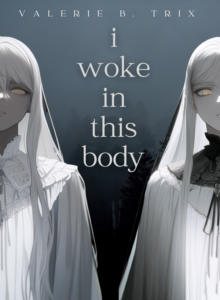In the meantime death made its appearance in our family. Before this, I had never met Death face to face. When my mother died I was quite a child. She had been ailing for quite a long time, and we did not even know when her malady had taken a fatal turn. She used all along to sleep on a separate bed in the same room with us. Then in the course of her illness she was taken for a boat trip on the river, and on her return a room on the third storey of the inner apartments was set apart for her.
On the night she died we were fast asleep in our room downstairs. At what hour I cannot tell, our old nurse came running in weeping and crying: “O my little ones, you have lost your all!” My sister-in-law rebuked her and led her away, to save us the sudden shock at dead of night. Half awakened by her words, I felt my heart sink within me, but could not make out what had happened. When in the morning we were told of her death, I could not realize all that it meant for me.
As we came out into the verandah we saw my mother laid on a bedstead in the courtyard. There was nothing in her appearance which showed death to be terrible. The aspect which death wore in that morning light was as lovely as a calm and peaceful sleep, and the gulf between life and its absence was not brought home to us.
Only when her body was taken out by the main gateway, and we followed the procession to the cremation ground, did a storm of grief pass through me at the thought that mother would never return by this door and take again her accustomed place in the affairs of her household. The day wore on, we returned from the cremation, and as we turned into our lane I looked up at the house towards my father’s rooms on the third storey. He was still in the front verandah sitting motionless in prayer.
She who was the youngest daughter-in-law of the house took charge of the motherless little ones. She herself saw to our food and clothing and all other wants, and kept us constantly near, so that we might not feel our loss too keenly. One of the characteristics of the living is the power to heal the irreparable, to forget the irreplaceable. And in early life this power is strongest, so that no blow penetrates too deeply, no scar is left permanently. Thus the first shadow of death which fell on us left no darkness behind; it departed as softly as it came, only a shadow.
When, in later life, I wandered about like a madcap, at the first coming of spring, with a handful of half-blown jessamines tied in a corner of my muslin scarf, and as I stroked my forehead with the soft, rounded, tapering buds, the touch of my mother’s fingers would come back to me; and I clearly realised that the tenderness which dwelt in the tips of those lovely fingers was the very same as that which blossoms every day in the purity of these jessamine buds; and that whether we know it or not, this tenderness is on the earth in boundless measure.
The acquaintance which I made with Death at the age of twenty-four was a permanent one, and its blow has continued to add itself to each succeeding bereavement in an ever lengthening chain of tears. The lightness of infant life can skip aside from the greatest of calamities, but with age evasion is not so easy, and the shock of that day I had to take full on my breast.
That there could be any gap in the unbroken procession of the joys and sorrows of life was a thing I had no idea of. I could therefore see nothing beyond, and this life I had accepted as all in all. When of a sudden death came and in a moment made a gaping rent in its smooth-seeming fabric, I was utterly bewildered. All around, the trees, the soil, the water, the sun, the moon, the stars, remained as immovably true as before; and yet the person who was as truly there, who, through a thousand points of contact with life, mind, and heart, was ever so much more true for me, had vanished in a moment like a dream. What perplexing self-contradiction it all seemed to me as I looked around! How was I ever to reconcile that which remained with that which had gone?
The terrible darkness which was disclosed to me through this rent, continued to attract me night and day as time went on. I would ever and anon return to take my stand there and gaze upon it, wondering what there was left in place of what had gone. Emptiness is a thing man cannot bring himself to believe in; that which is not, is untrue; that which is untrue, is not. So our efforts to find something, where we see nothing, are unceasing.
Just as a young plant, surrounded by darkness, stretches itself, as it were on tiptoe, to find its way out into the light, so when death suddenly throws the darkness of negation round the soul it tries and tries to rise into the light of affirmation. And what other sorrow is comparable to the state wherein darkness prevents the finding of a way out of the darkness?
And yet in the midst of this unbearable grief, flashes of joy seemed to sparkle in my mind, now and again, in a way which quite surprised me. That life was not a stable permanent fixture was itself the sorrowful tidings which helped to lighten my mind. That we were not prisoners for ever within a solid stone wall of life was the thought which unconsciously kept coming uppermost in rushes of gladness. That which I had held I was made to let go—this was the sense of loss which distressed me,—but when at the same moment I viewed it from the standpoint of freedom gained, a great peace fell upon me.
The all-pervading pressure of worldly existence compensates itself by balancing life against death, and thus it does not crush us. The terrible weight of an unopposed life force has not to be endured by man,—this truth came upon me that day as a sudden, wonderful revelation.
With the loosening of the attraction of the world, the beauty of nature took on for me a deeper meaning. Death had given me the correct perspective from which to perceive the world in the fulness of its beauty, and as I saw the picture of the Universe against the background of Death I found it entrancing.
At this time I was attacked with a recrudescence of eccentricity in thought and behaviour. To be called upon to submit to the customs and fashions of the day, as if they were something soberly and genuinely real, made me want to laugh. I could not take them seriously. The burden of stopping to consider what other people might think of me was completely lifted off my mind. I have been about in fashionable book shops with a coarse sheet draped round me as my only upper garment, and a pair of slippers on my bare feet. Through hot and cold and wet I used to sleep out on the verandah of the third storey. There the stars and I could gaze at each other, and no time was lost in greeting the dawn.
This phase had nothing to do with any ascetic feeling. It was more like a holiday spree as the result of discovering the schoolmaster Life with his cane to be a myth, and thereby being able to shake myself free from the petty rules of his school. If, on waking one fine morning we were to find gravitation reduced to only a fraction of itself, would we still demurely walk along the high road? Would we not rather skip over many-storied houses for a change, or on encountering the monument take a flying jump, rather than trouble to walk round it? That was why, with the weight of worldly life no longer clogging my feet, I could not stick to the usual course of convention.
Alone on the terrace in the darkness of night I groped all over like a blind man trying to find upon the black stone gate of death some device or sign. Then when I woke with the morning light falling on that unscreened bed of mine, I felt, as I opened my eyes, that my enveloping haze was becoming transparent; and, as on the clearing of the mist the hills and rivers and forests of the scene shine forth, so the dew-washed picture of the world-life, spread out before me, seemed to become renewed and ever so beautiful.







